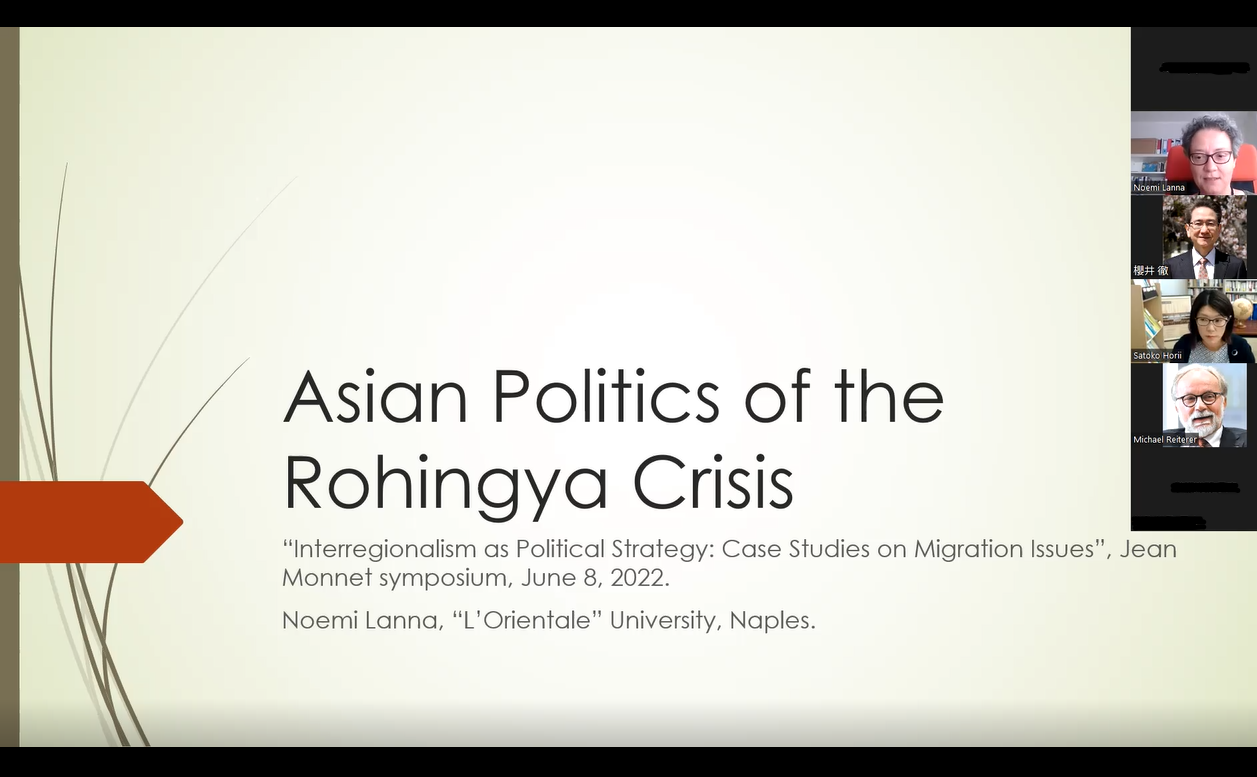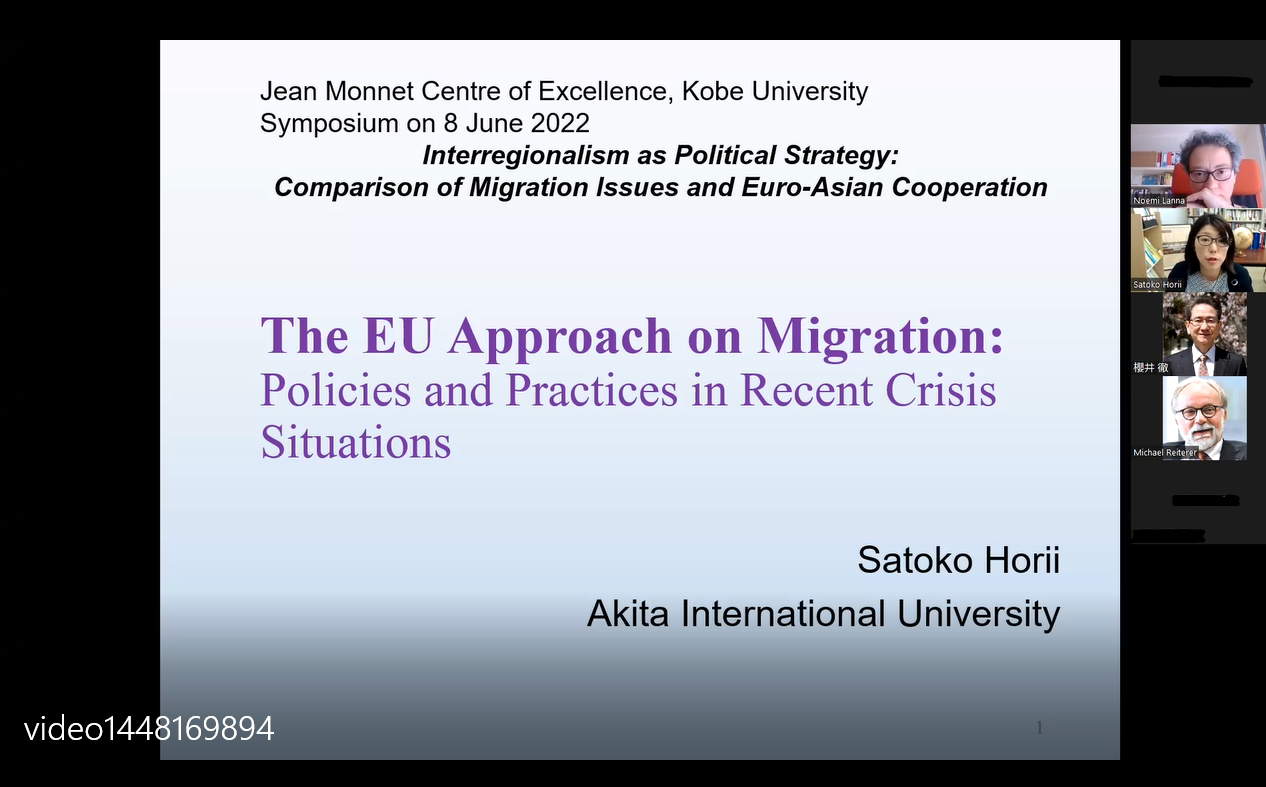Research Symposium “Interregionalism as Political Strategy: Comparison of Migration Issues and Euro-Asian Cooperation” was held on 8 June 2022
On June 8 (Wednesday) 2022, Jean Monnet Centre of Excellence at Kobe University held a research symposium entitled “Interregionalism as Political Strategy: Comparison of Migration Issues and Euro-Asian Cooperation”. The symposium, which was held online (ZOOM) and attended by 36 participants, was co-organised by the JSPS (Japan Society for the Promotion of Science) programme.
After welcoming remarks by the moderator, Prof. Tetsu Sakurai (Graduate School of Intercultural Studies, Kobe University), Prof. Noemi Lanna (University of Naples “L’Orientale”) began her presentation “Asian Politics of the Rohingya Crisis”. First, she pointed out that migration has been a testing ground for regional institutions and interestingly, the response of East Asia to the Rohingua refugee crisis has been relatively neglected in the academic research. Next, Prof. Lanna outlined the origin of the Rohingya issue (a discriminated Muslim minority in western Myanmar) and what led to the large scale migration of Rohingyas from Myanmar to other South Asian and South East Asian countries. She then demonstrated that the response by ASEAN, ASEAN plus Three and the East-Asia summit to the Rohingya migration crisis has been slow and without incisive involvement. This can be explained by certain distinctive features of the Asian regionalism (respect for the principle of non-interference and consensus-driven decision-making process). On the other hand, such limited action by the Asian regional institutions provided more scope for influence and engagement by the major regional powers (the USA, Japan and China) and by the European Union.
Second presentation “The EU Approach on Migration: Policies and Practices in Recent Crisis Situations” was delivered by Prof. Satoko Horii (Akita International University). Prof. Horii first explained the main instruments in the EU’s migration governance (Schengen area, integrated border management and Common European Asylum System) and then moved on to highlight how the large migrant flows in 2015-17 prompted the EU to adopt new measures in response. She illustrated for example the Emergency Relocation Mechanism and the cooperation with non-EU countries (Turkey, Libya) on migration management and outlined the new Pact on Migration and Asylum from 2020. Prof. Horii pointed out that in contrast to the case of the 2015-17 migration crisis, the EU demonstrated a swift, coordinated and coherent action in response to the large refugee flows from Ukraine.
After these two presentation, a discussion was opened by comments from Mr. Michael Reiterer (EU Ambassador Retired). Mr. Reiterer first pointed out the need to clearly distinguish among migrants, refugees and asylum seekers. Regarding the Rohingya refugee crisis, he emphasized the need of a stronger multilateral approach and more involvement by the United Nations. He indicated that as ASEAN strives to implement the common market which includes free movement, it does need to address the migration issues as well. Prof. Horii explained the difficulty involved in clear categorization of the three migration groups and Prof. Lanna agreed that the Asian regional institutions need to reevaluate their practices, but without the need to strictly converge to the European methods of integration.
There were two questions from student participants (regarding the role of other players, such as Turkey in addressing the Rohingya migration crisis and the factors which can explain China’s stance towards the Rohingya issue) and both professors gave detailed replies.
In the concluding part, Mr. Reiterer by contrasting the cases of Japan and the EU invited participants to reflect on the kind of society we should strive to achieve. Japan still remains a society closed to migration (e.g. in 2020 Japan granted the asylum status to as few as 47 people), whereas the EU remains to be a very attractive destination for migrants (1 in 3 migrants in the world wishes to reach the EU). Prof. Horii commented that Japan should aim to become more open, but this is not possible without a more robust debate on migration at the national level.
The research symposium enabled a very stimulating discussion of the important topic of migration and highlighted a scope for more action by Asian regional initiatives.



